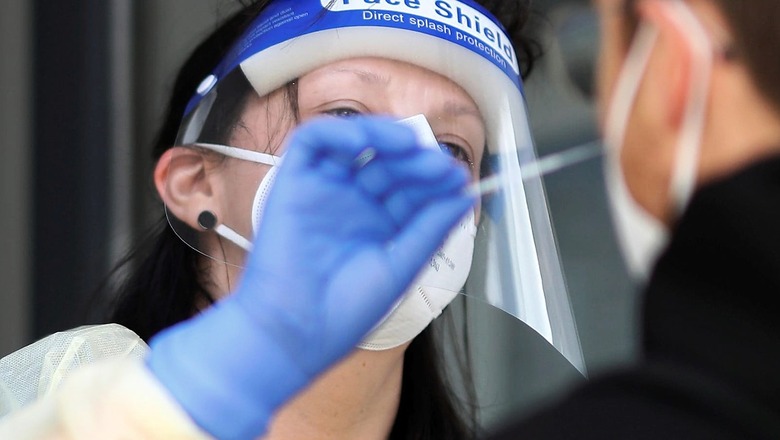
views
Days after experts said that Deltacron, an alleged hybrid coronavirus mutation discovered in a Cyprus lab, is most likely the result of a lab contamination, the World Health Organization (WHO) has said that the term is being used when a person is infected with both Delta as well as the Omicron variant of the Covid-19. It added that Deltacron is “not really a thing.”
The term made headlines this week after a researcher, Leondios Kostrikis, in Cyprus allegedly discovered a strain that combines both the variants. Soon after, a report in Bloomberg claimed that 25 cases of Deltacron were detected in Cyprus.
Kostrikis, who is also the head of its Laboratory of Biotechnology and Molecular Virology, was quoted by Bloomberg as saying that they had found a strain that displays “Omicron-like genetic signatures within the Delta genomes” upon analysis of samples from 25 patients.
“There are currently Omicron and Delta co-infections and we found this strain that is a combination of these two,” Kostrikis said in an interview with a TV channel, adding that they had named the strain “deltacron”.
During a discussion, Dr Maria Van Kerkhove, WHO technical lead of Covid-19, said that Deltacron might be a result of “contamination” during the sequencing process. She said the instance of individuals infected with both influenza and Covid-19 “throughout this pandemic” are in plenty, Hindustan Times reported.
“There was a recent systematic review that looked at the prevalence of this (coinfection with Covid-19 and influenza). They also looked at whether or not people had more severe disease and the review discovered that coinfection didn’t increase the severity of the disease,” she said.
Kostrikis had earlier said that his team had uploaded the sequences of the 25 deltacron to GISAID, the international database that tracks changes in the virus, on January 7.
As reports about deltacron’s emergence went viral, several scientists and health experts rushed to shoot down the speculation about the rise of another variant, saying that its discovery was more likely a result of lab contamination.
Imperial College London virologist Tom Peacock said in a series of posts on Twitter that “The Cypriot ‘Deltacron’ sequences reported by several large media outlets look to be quite clearly contamination”, noting that it does not demonstrate key aspects that would point to the appearance of a new variant.
Another infectious diseases specialist and a member of WHO’s Covid-19 Technical Team, Dr Krutika Kuppalli was emphatic in her rejection of deltacron, saying, it “is not real and is likely due to sequencing artifact (lab contamination of #Omicron sequence fragments in a #Delta specimen)”. As the world contends with new coinages that suggest the rise of mutations and transformations of the virus, she urged that “let’s not merge of names of infectious diseases and leave it to celebrity couples”.
A similar tone was struck by Dr Eric Topol, the founder of the Scripps Research Translational Institute in the US, who tweeted that deltacron “‘deltacron’ is a scariant” and that it “isn’t even a real variant but scares a lot of people, unnecessarily”.
Another expert, Dr Boghuma Kabisen Titanji, too, urged caution in jumping to conclusions about the rise of a new variant, saying on Twitter that one should “interpret with caution” the reports from Cyprus as “the information currently available is pointing to contamination of a sample as opposed to true recombination of #delta and #omicron variants”.
Although terms like “delmicron” and “flurona” or “florona” have done the rounds amid the rise of the Omicron variant, experts have been at pains to dispel rumour mongering around the pandemic. “Delmicron” was used to suggest a surge fuelled by the Delta and Omicron variants while “florona” referred to the discovery of flu and Covid-19 in a single patient, a situation that experts have anticipated.
But Dr Kostrikis, who announced deltacron to the world, countered the experts who have dismissed it as a result of lab contamination by saying that “findings refute the undocumented statements that deltacron is a result of a technical error”. Reports say he told Bloomberg in an emailed statement that the cases he has identified “indicate an evolutionary pressure to an ancestral strain to acquire these mutations and not a result of a single recombination event”.
He pointed to deltacron’s discovery in hospitalised patients as evidence that can serve to rule out the contamination theory. He also said that at least one sequence from Israel submitted to a global database shows genetic characteristics of deltacron.
Read all the Latest India News here




















Comments
0 comment